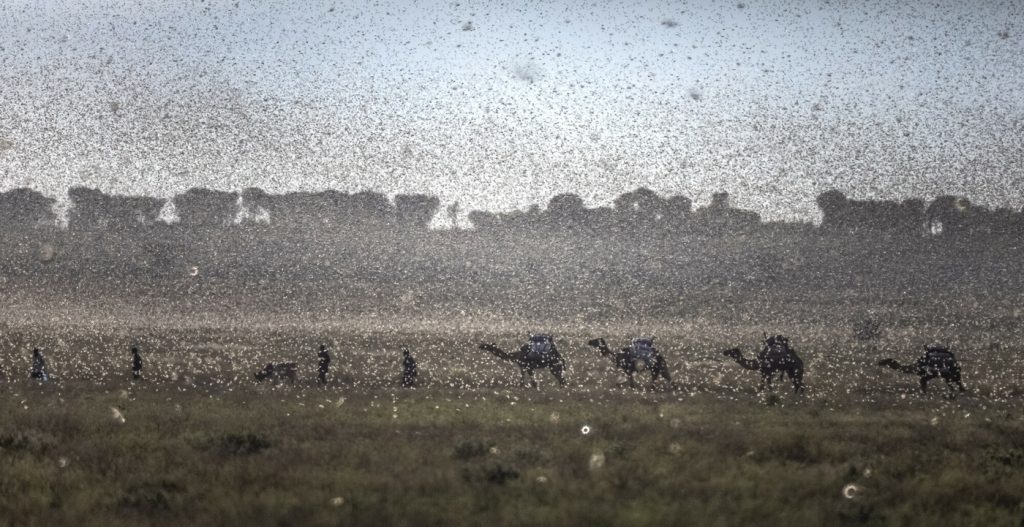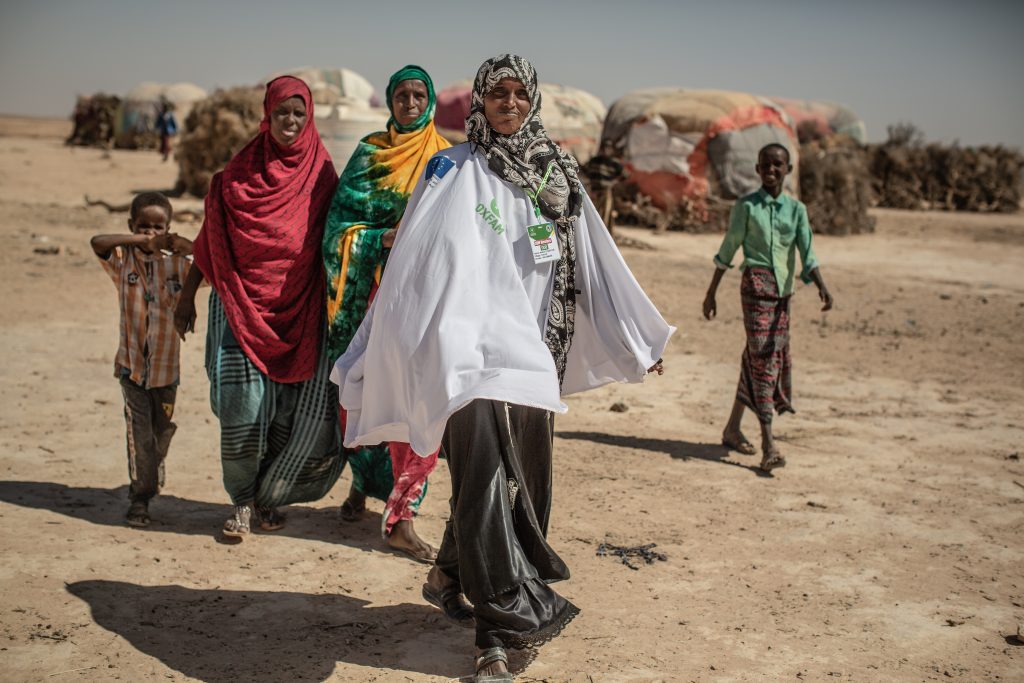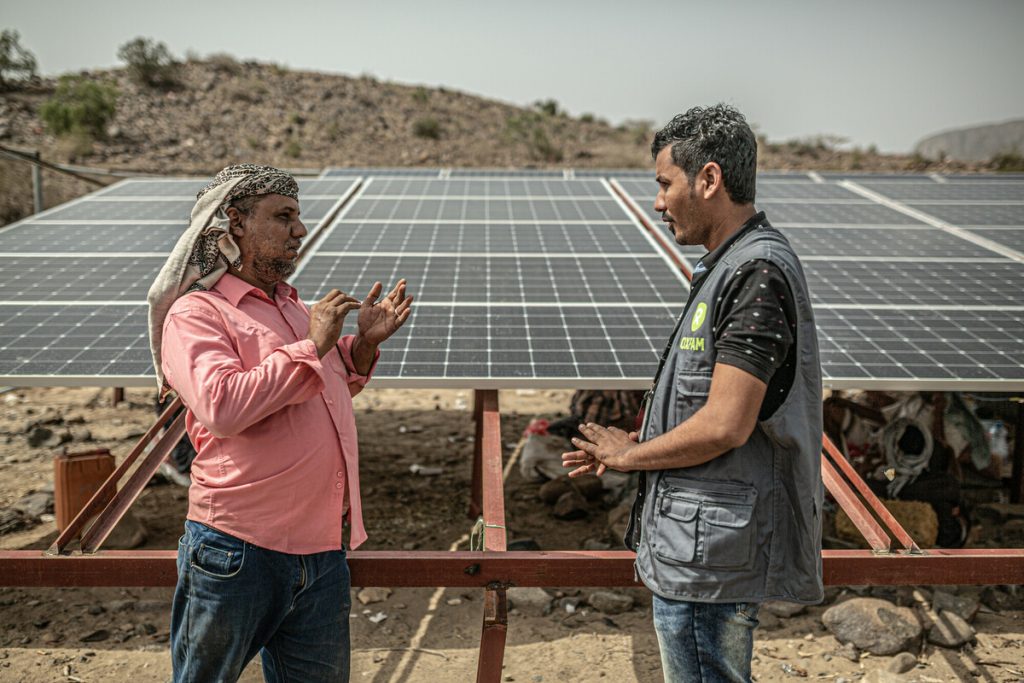The Greatest Challenge to Humanitarian Work: Funding
Humanitarian needs around the world are at an all-time high, but woeful underfunding is hindering humanitarian action.
Climate change, conflict and the economic fallout of COVID-19 are skyrocketing humanitarian needs around the world. This year, the United Nations reports that 274 million people in over 63 countries – the highest figure in decades – will need humanitarian assistance and protection.
Aid workers are responding to historic numbers of people fleeing political repression, persecution, armed conflict, gender-based violence, and natural disasters. Earlier this year, we reached the staggering milestone of 100 million people worldwide who have fled their homes in search of safety – this is the largest number on record since World War II.
Russia's invasion of Ukraine has caused a massive spike in grain and energy prices, worsening what was already an inflationary trend, meaning that even when food is available, millions of people cannot afford it.
Adding to this scenario are the socio-economic difficulties brought by the COVID-19 pandemic and an accelerating climate crisis causing extreme weather events to intensify food insecurity globally.
There are now 828 million people going hungry worldwide.
These numbers depict the unprecedented scope and scale of complex challenges that humanitarian aid workers face in providing lifesaving assistance to those who need it most. Yet, funding for their work remains well below what's needed.

A herd of camels walks through a locust swarm near Jijiga, the capital city of Ethiopia's Somali region. Along with climate shocks and conflict, East Africa's hunger crisis has worsened due to growing swarms of ravenous locusts devastating crops. Photo: Petterik Wiggers/Oxfam
Humanitarian Workers Face Staggering Challenges Responding to the Global Food Crisis
One person is likely dying of hunger every 48 seconds in East Africa.
Over 23 million people in Ethiopia, Kenya, and Somalia – roughly the combined population of Ontario and Quebec – are on the brink of experiencing famine-like conditions due to four consecutive seasons of failed rains combined with food shortages caused by the war in Ukraine. Close to six million children across the region suffer from acute malnutrition.
After seven years of conflict, Yemen, which imports 90 per cent of its food, is experiencing crisis levels of food insecurity due to rising costs. Nearly 80 per cent of the country's 30 million population relies on humanitarian assistance for daily survival.
However, in the face of these staggering figures:
- Just two per cent ($93 million) of the $4.4-billion UN appeal for Ethiopia, Kenya, and Somalia has been formally funded.
- Yemen's humanitarian response for this year is currently 70 per cent underfunded, providing only 15 cents per day per person needing assistance.
The cost of inaction in the face of these challenges is high
Our research and indicators show that:
How Oxfam Humanitarian Workers Deliver Aid
BUILDING LOCAL CAPACITY. We recognize that local responders are often the best placed to help in emergencies. We work with governments, local organizations, and communities so that they are ready to respond to emergencies and able to cope when a crisis hits. Our aid workers make sure people can get clean water and decent sanitation. They also help them get food and the essentials people in crisis need to survive.
SUPPORTING WOMEN'S RIGHTS AND GENDER JUSTICE. Our humanitarian responses prioritize the needs of women and girls, as they're often discriminated against or have fewer resources to cope and recover from emergencies. We promote women and girls' safe and accessible use of our humanitarian programs. We also support women's organizations to lead in emergency preparedness, risk reduction and response.
BUILDING RESILIENCE. Through long-term development, Oxfam and local partners stay well after the dust has settled to help rebuild communities to come back stronger from disaster. We support them in being better prepared to cope with shocks and uncertainties.
CAMPAIGNING AND INFLUENCING. We also use our position on the global stage to call for long-term peaceful resolutions to hostilities that are ravaging lives. We lobby governments for meaningful change in policy and legislation.

Asia Abdelaiz is a health promoter in Docoloha village in Somaliland who teaches people how to prevent diseases through good hygiene practices, like handwashing with soap and water after using a latrine. Photo: Pablo Tosco/Oxfam
Our Humanitarian Work to Tackle the Hunger Crisis by Country
Ethiopia
We've been responding to the crisis in Tigray and Amhara since November 2020. To date, our aid workers have reached more than 105,000 people across the three regions affected by the conflict in northern Ethiopia. In 2023, Oxfam and local partners plan to assist 750,000 people with emergency food packages, cash transfers, clean water, sanitation, and hygiene kits.
Kenya
The country is experiencing its fourth consecutive drought season, resulting in 3.5 million people in acute hunger and needing aid. Oxfam aims to assist 300,000 people and has already supported nearly 80,000. Our aid workers, working with local organizations and the private sector, provide emergency cash support, water and sanitation services, and protection to survivors and those at risk of sexual and gender-based violence.
Somalia
With the support of our local partners, our aid workers have been providing water, sanitation, emergency cash support, and protection services to mitigate and prevent gender-based violence for displaced people in Jubaland, in the southern part of the country. We've reached nearly 100,000 people affected by the severe drought to date. Our goal is to reach 420, 000 people across Somalia.
South Sudan
Our aid workers are responding to multiple humanitarian crises in South Sudan, where over 70 per cent of the population – more than eight million people – depend on humanitarian assistance. They provide farmers cash support, vegetable seeds and tools, and rehabilitate water points like boreholes. They also support women and girls accessing menstrual hygiene and health kits. Oxfam has supported 20,000 people so far. Our goal is to reach 400,000 people.
Yemen
We're supporting people with the provision of basic services like clean water, sanitation, and access to cash, and establishing solar energy at household and community levels. In 2021, our aid workers were able to help around 92,000 people.

Oxfam water engineer, Monther Alattar (right), is responsible for the solar-powered desalination plant in the town of Almusaimir in southern Yemen, which provides clean water to displaced people. Oxfam has installed three water supply systems powered by solar panels, halving the cost of water delivery by trucks. Photo: Pablo Tosco/Oxfam
What You Can Do to Support our Humanitarian Work
World Humanitarian Day is an occasion to remember the aid workers working at the frontlines, who often, at great personal risk and with unwavering commitment, deliver assistance to the people who need it most.
Oxfam stands in solidarity with all aid workers worldwide. We recognize the tremendous service of our humanitarian workers and partners around the world and celebrate their dedication to providing lifesaving assistance, advancing women's rights, and fighting the injustice of poverty.
Oxfam responds to multiple emergency situations worldwide at any given time. Although the humanitarian challenges continue growing, so does our determination to live up to our commitment to save and improve lives and contribute to an equal future. You can support our humanitarian work by sharing this blog post with your friends and network. You can also see all our emergency appeals and learn more about each context from reading our stories. Or you can donate now to stop extreme hunger, or give to our emergency support fund.

